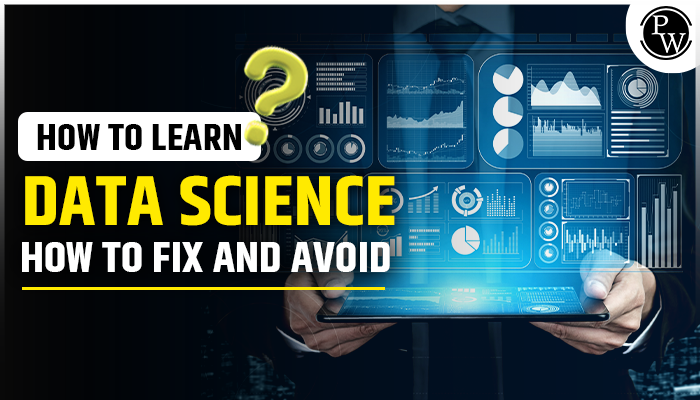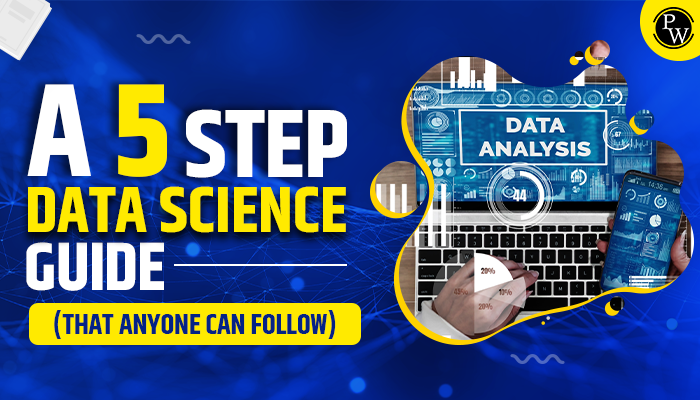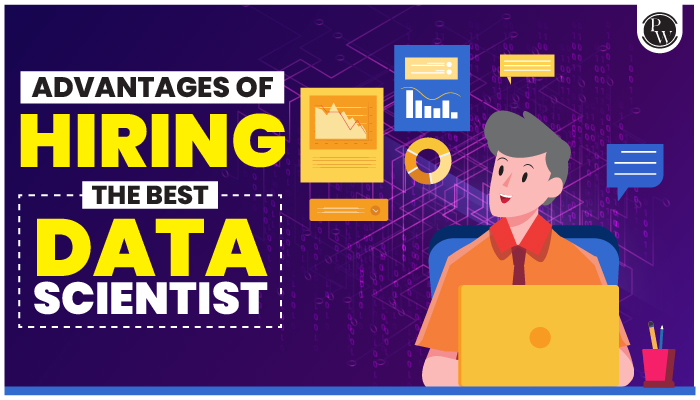Data science has proven to be a game-changer in our modern, fast-paced world; its ability to extract insights, foresee trends, and affect decision-making has evolved into a demanding career across industries. Data science has a promising future with a wide range of applications and several work opportunities. The field of data science is always evolving and offers appealing alternatives for anyone who is prepared to follow a data-driven route.
Statistical analysis, machine learning, and domain knowledge are all used in the huge amount of data science to get information and practical insights from enormous and complicated data sets. In the modern digital age, we produce massive amounts of data every second. This knowledge is extremely important and has the power to completely change how firms operate, drive innovation, and solve complex problems.
Data science is widely used in a variety of organizations extensively. It has helped a number of industries, including manufacturing, banking, healthcare, and marketing. Data scientists are essential for gaining insights from large, complicated information, seeing patterns, streamlining workflows, and making data-driven choices.
Also read: Future of Data Science: Trends to Watch in 2025
Recommended Courses :
- Decode Data Science with ML 1.0
- Decode Full Stack Web Dev 1.0
- Decode JAVA with DSA 1.0
- System Design
Data Science: Importance
A sufficient amount of data from a variety of sources, as well as the knowledge necessary to get the most pertinent facts and make wise judgments. Data science includes methods, tools, and processes that provide companies the ability to analyze data, boost productivity, personalize consumer experiences, predict market trends, and spur innovation.
The scope of data science includes the personalization of customer experiences, anticipating trends, and driving innovation. Data science, which enables organizations to take advantage of data’s power and tap into its potential for growth and success, is emerging as a key discipline amid this era of massive amounts of information.
Also read: The Role of Data Science Engineers in Data Science 2023
Below points mentioned the 6 importance of Data Science –
- Extracts insights from huge amounts of data.
- Enables data-driven decision-making.
- Improves operational efficiency.
- Personalized customer experiences.
- Provides predictive analytics for forecasting.
- Drives innovation and research.
Data Science: Technologies
Data science relies on several advanced technologies to effectively analyze and derive insights from data. Some 5 key technologies used in data science include:
Artificial intelligence (AI): Data science relies heavily on machine learning, a subset of artificial intelligence (AI). Machine learning models and related software are used for tasks including predictive analysis, pattern recognition, and decision-making.
Cloud computing: Data scientists commonly make use of cloud computing platforms to manage the substantial volumes of data involved in data science initiatives. Cloud technology offers the scalability, storage, and computing capacity necessary for complicated data analysis.
Internet of Things (IoT): The IoT is a network of linked objects that communicate and gather data. Data scientists may use IoT device data for activities like data mining, predictive modeling, and gleaning insightful information.
Quantum computing: Quantum computers have tremendous processing capacity and effectively handle complicated calculations. Knowledgeable data scientists use quantum computing for activities like creating advanced algorithms and resolving challenging optimization challenges.
Big Data Technologies: Big Data Technologies are used to manage, process, and analyze the enormous and diverse datasets that data science usually deals with. Thanks to tools like Apache Spark, Apache Hadoop, and NoSQL databases, data scientists are able to work with enormous amounts of data effectively.
Also read: Top 30+ Data Scientist Skills You Need In 2023
What is the work of a Data Scientist?
When conducting data science, a data scientist uses a variety of techniques, instruments, and technologies to extract insights from the data. Depending on the size and requirements of the organization, the specific responsibilities and daily work of a data scientist may fluctuate.
A broad description of what a data scientist performs is provided below:
- Problem formulation: Collaborate with stakeholders to define data-driven problem statements.
- Data collection and preparation: Gather, clean, and preprocess relevant data for analysis.
- Exploratory data analysis: Uncover patterns, relationships, and insights in the data.
- Feature engineering: Select or create informative features for modelling.
- Model selection and training: Use historical data to choose appropriate algorithms and train models.
- Model evaluation and validation: Assess model performance and ensure accuracy.
- Deployment and integration: Implement models into production systems or decision-making processes.
- Monitoring and maintenance: Continuously monitor model performance and update as needed.
- Communication and storytelling: Effectively present findings and insights to stakeholders.
FAQs
What makes data science so crucial? It is what?
Programming, machine learning, statistical analysis, and other approaches are all used in the multidisciplinary field of data science to glean meaningful insights from data. Because it enables organizations to solve difficult issues, identify patterns and trends, and make educated choices, it gives them a competitive edge in today's data-driven world.
How can data scientists contribute to business success?
By providing useful insights derived from data analysis, data scientists contribute to business success. They also help businesses make decisions based on data, improve processes, spot trends and patterns, make customer service better, create predictive models, and find new growth and innovation opportunities.
What technological and soft skills are required to become a data scientist?
Technological skills - Python, R, Machine Learning, Basic Deep Learning, Statistics, Mathematics, Data Visualisation skills, Data Manipulation and preprocessing. Soft skills include presentation skills, storytelling and the ability to think critically.
How are data scientists different from data analysts?
Data analysts and data scientists both deal with data, although their positions differ in important ways. Data scientists have a broader emphasis and are involved in creating and executing sophisticated models and algorithms to address issues, in contrast to data analysts who concentrate on analyzing and interpreting data to offer insights. Usually, data scientists need more complex coding abilities.
Which sectors make use of data scientists?
Data science can be used in various sectors like healthcare, telecommunication, sales and marketing, technology, economy and finance. It can be used to get valuable and hidden patterns and trends to make better decisions which may be used to get profit.






